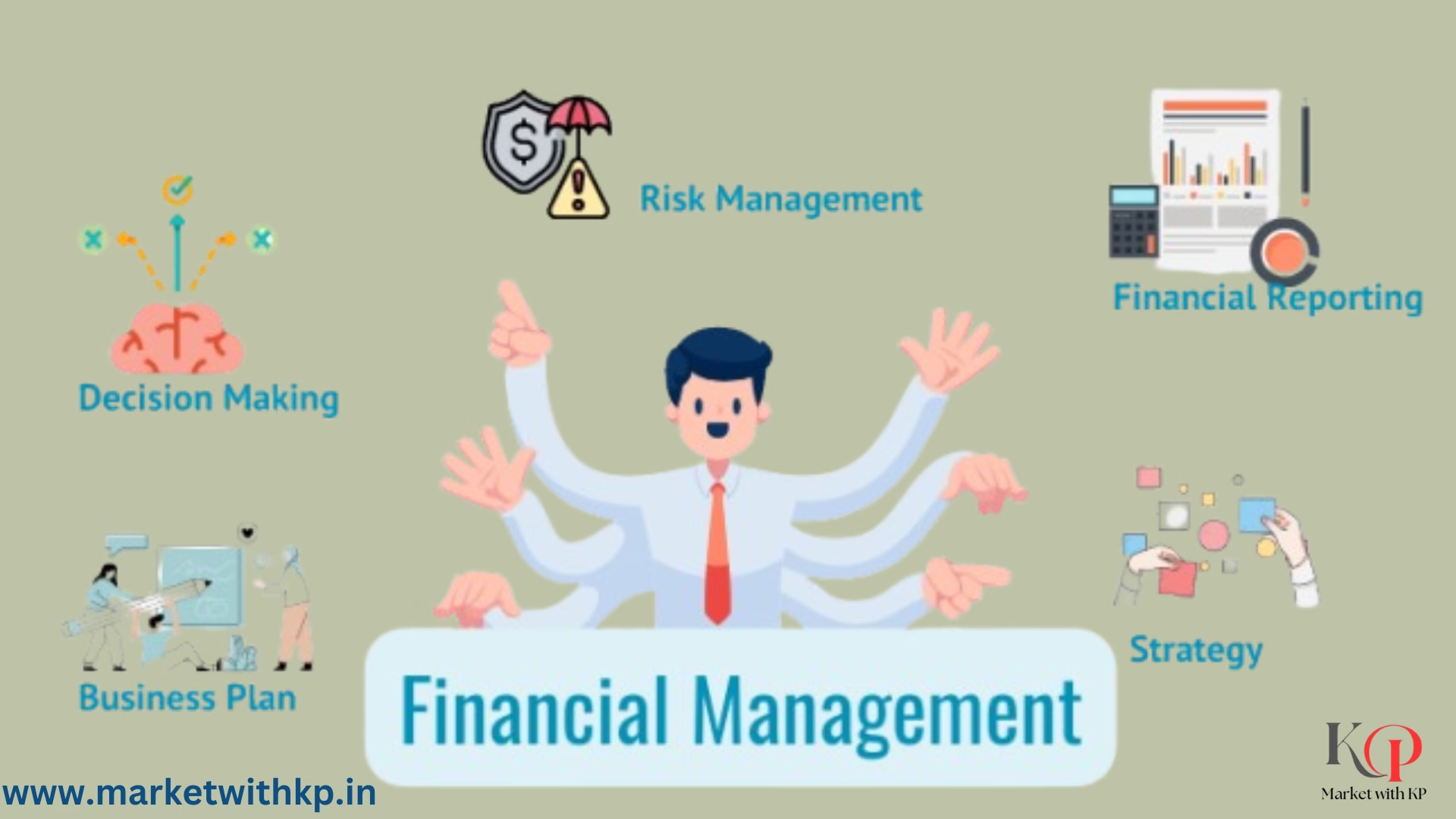The journey to start and succeed in a small business is an exciting one filled with opportunities and challenges. Investing in the right strategies can help small businesses achieve sustainable growth, develop strong relationships with their customers, and establish themselves as key players in their fields with the right strategies. This guide offers a complete roadmap to achieving small business success. It outlines the 10 most effective strategies that can propel your business forward and unlock its maximum potential.
Small Business Success is a Journey

Small business success is a journey, not a destination. It requires passion, resilience, and adaptability to navigate the challenges that come with building and growing a business. From setting clear goals to learning from setbacks, every step along the way offers valuable lessons that shape the future of the enterprise. Success is not about achieving perfection but about continuously improving, innovating, and staying committed to the vision. Each milestone, whether big or small, contributes to the overall progress and fulfillment of the entrepreneurial dream.
1. Define Your Unique Value Proposition (UVP)
Having a unique value proposition sets your business apart from those of your competitors. It communicates to the customer what specific benefits your company can offer. To achieve small business success, effectively communicate the unique value proposition that your products or services offer to your customers.
- Why It Matters: A strong UVP helps attract and retain customers by showcasing the distinct advantages of your business.
- How to Implement: Conduct market research to understand your audience’s pain points, analyze competitors, and craft a compelling message that highlights your strengths.
Example:
If you own a bakery, your UVP might be: “Freshly baked goods made with 100% organic ingredients delivered to your doorstep.”
Defining your UVP isn’t a one-time activity. To ensure small business success, it’s crucial to constantly refine your approach. Pay close attention to how market trends are evolving and actively seek out feedback from your customers to gain valuable insights.
2. Leverage Digital Marketing

In today’s digital age, a strong online presence is crucial for small business success. Digital marketing empowers businesses to connect with a wider audience and foster deeper relationships with potential customers than ever before. It’s like having a megaphone that lets you precisely target your message to the right people at the right time, whether they’re across the country or just down the street.
- Key Tactics:
- Search Engine Optimization (SEO): Optimize your website to rank higher on search engines.
- Social Media Marketing: Build a presence on platforms like Facebook, Instagram, and LinkedIn.
- Email Marketing: Send newsletters to keep your audience informed and engaged.
Pro Tip:
Invest in paid advertising campaigns like Google Ads or Facebook Ads to drive targeted traffic to your website.
In addition to these strategies, consider content marketing. Create blog posts, videos, or infographics that provide value to your audience. By positioning yourself as an industry expert, you can build trust and attract long-term customers, which are crucial for small business success.
3. Focus on Customer Experience

Customer experience is at the heart of any successful business strategy. It’s not just about delivering products or services; it’s about creating meaningful, personalized interactions that make customers feel valued. By focusing on customer experience, businesses can build stronger relationships, improve satisfaction, and foster loyalty, which in turn drives growth and success.
The key to small business success often lies in delivering outstanding customer service. A satisfied customer is more likely to return and refer your business to others.
- Strategies:
- Train your staff to provide friendly and efficient service.
- Solicit feedback through surveys and act on suggestions.
- Offer loyalty programs to reward repeat customers.
Case Study:
A local coffee shop improved its customer retention by implementing a rewards program that offered a free coffee after every 10 purchases.
Beyond loyalty programs, ensure that every touchpoint in the customer journey—from website navigation to post-purchase support—delivers a seamless experience.
4. Build a Strong Online Presence

Building a strong online presence is crucial for success in today’s digital world. By consistently sharing valuable content, engaging with your audience on social media, and optimizing your website for search engines, you can establish credibility and attract more opportunities.
Regular updates and active interaction with followers help foster trust and loyalty, making your online identity a powerful tool for growth.Your website and social media profiles are often the first impression potential customers have of your business. This can significantly impact your small business success. Ensure they leave a lasting impression.
- Best Practices:
- Create a mobile-friendly website with clear navigation.
- Regularly update your social media profiles with engaging content.
- Use online reviews and testimonials to build credibility.
Example:
A freelance graphic designer increased their client base by showcasing a portfolio and client testimonials on their website.
Consider integrating live chat features or AI-driven chatbots on your website to provide real-time assistance to visitors. This can improve engagement and increase conversion rates.
5. Adopt Agile Financial Management

Efficient financial management is critical to the success of any small business.Adopting flexible financial management allows organizations to stay flexible and responsive in a rapidly changing business environment. By embracing iterative planning, continuous feedback, and real-time adjustments, companies can optimize resource allocation, reduce risks, and improve decision-making. This approach allows finance teams to quickly adapt to changing market conditions, ensuring their financial strategies always support the company’s goals for small business success.
Monitor your cash flow, minimize unnecessary expenses, and plan for the future.
- Tips:
- Use accounting software to track income and expenses.
- Create a budget and stick to it.
- Set aside funds for emergencies and growth opportunities.
Quick Insight:
Businesses with strong financial planning are more resilient during economic downturns.
To go a step further, regularly review financial statements and key metrics such as profit margins and debt ratios. These insights can help you make informed decisions and pinpoint areas where you can improve your small business success.
6. Harness the Power of Networking

Building relationships with other professionals can open doors to new opportunities, partnerships, and resources.Harnessing the power of networking is one of the most effective ways to grow both personally and professionally. By building meaningful relationships with others in your industry or field, you gain access to new opportunities, valuable insights, and support that can help you advance your career.
Networking allows you to share knowledge, collaborate on projects, and discover fresh perspectives. Whether through in-person events, online communities, or social media, fostering a strong network opens doors that might otherwise remain closed. Connecting with others is key to small business success. Invest your time and effort in building relationships, and you’ll reap the rewards long-term.
- Networking Channels:
- Join local business associations or chambers of commerce.
- Attend industry conferences and trade shows.
- Participate in online forums and LinkedIn groups.
Success Story:
A small IT firm partnered with a marketing agency they met at a networking event, leading to a 30% increase in clients.
Networking isn’t just about exchanging business cards. Focus on building genuine relationships and look for ways to provide value to others. A strong network can become a long-term asset for your business.
7. Embrace Technology and Innovation

Technology can streamline operations, improve efficiency, and enhance the customer experience.In today’s fast-paced world, small businesses must embrace technology and innovation to thrive. It’s no longer optional for small business success. As industries advance, staying ahead means integrating the latest tools and ideas into our personal and professional lives.
- How to Start:
- Invest in customer relationship management (CRM) tools.
- Use project management software like Trello or Asana.
- Implement e-commerce solutions to sell products online.
Example:
A boutique store saw a 40% sales increase after launching an online shop and offering delivery services.
Explore emerging technologies such as artificial intelligence, automation, and data analytics. These tools can provide insights, optimize operations, and create a competitive edge.
8. Empower Your Team

Building a strong, supportive team is fundamental to small business success. Your employees are your greatest asset. By providing your team members with the tools, resources, and autonomy they need, you create an environment where they feel trusted and valued. Empowered individuals take ownership of their work, leading to better decision-making and ultimately contributing to the success of the small business.
Encouraging open communication, offering continuous learning opportunities, and recognizing achievements are all key strategies for empowering your team. A motivated and skilled team can drive innovation and ensure operational success.
- Ways to Empower:
- Provide regular training and development opportunities.
- Recognize and reward outstanding performance.
- Foster a positive work culture where feedback is valued.
Statistic:
Companies with engaged employees outperform those without by 202% (Gallup).
Fostering open communication and creating a supportive environment where employees feel valued are key to small business success. When employees are appreciated, it not only boosts morale but also enhances productivity and retention.
9. Monitor Key Performance Indicators (KPIs)

Monitoring Key Performance Indicators (KPIs) is essential for businesses to assess their progress toward goals and identify areas for improvement. KPIs provide a measurable way to track success, helping organizations make data-driven decisions. By regularly reviewing KPIs, businesses can gain insights into operational efficiency, customer satisfaction, and overall performance.
- Important KPIs for Small Businesses:
- Revenue growth
- Customer acquisition cost (CAC)
- Customer lifetime value (CLV)
- Website traffic and conversion rates
Tip:
Use tools like Google Analytics or Tableau to analyze and visualize your KPIs.
In addition to tracking KPIs, set clear, measurable goals and review them regularly. This helps align your efforts and ensure small business success
10. Adapt and Pivot When Necessary

In today’s rapidly evolving market, small business success hinges on adaptability and the willingness to pivot when necessary. Unexpected challenges, changing consumer preferences, and disruptive technologies can quickly derail even the most well-laid plans. Therefore, businesses must be agile, constantly monitoring their environment, and ready to adjust their strategies accordingly. This might involve exploring new markets, embracing innovative technologies, or even completely reimagining their business models. By embracing flexibility and a proactive approach to change, small businesses can not only survive but thrive in this dynamic landscape.
- Steps to Adapt:
- Stay updated on industry trends.
- Gather customer feedback to identify shifting needs.
- Experiment with new products, services, or business models.
Real-Life Example:
During the COVID-19 pandemic, many restaurants pivoted to offering takeaway and delivery services, which became a lifeline for their businesses.
Anticipate changes by conducting regular market analyses and scenario planning. This proactive approach allows you to stay ahead of the curve and seize new opportunities.
Conclusion
Unlocking growth for your small business requires a strategic approach, a willingness to embrace change, and a commitment to continuous improvement. By implementing these top 10 success strategies, you can position your business for long-term success and make a meaningful impact in your industry.
Remember, every small step counts, and consistency is key. Start applying these strategies today and watch your business soar to new heights.
By incorporating a mix of proven tactics and innovative practices, you can navigate the complexities of small business growth with confidence. Whether you’re just starting out or looking to scale, these strategies provide a roadmap for success. Continuous learning, adaptability, and a relentless focus on providing real value to your customers are crucial ingredients for small business success. Success is within your reach.

